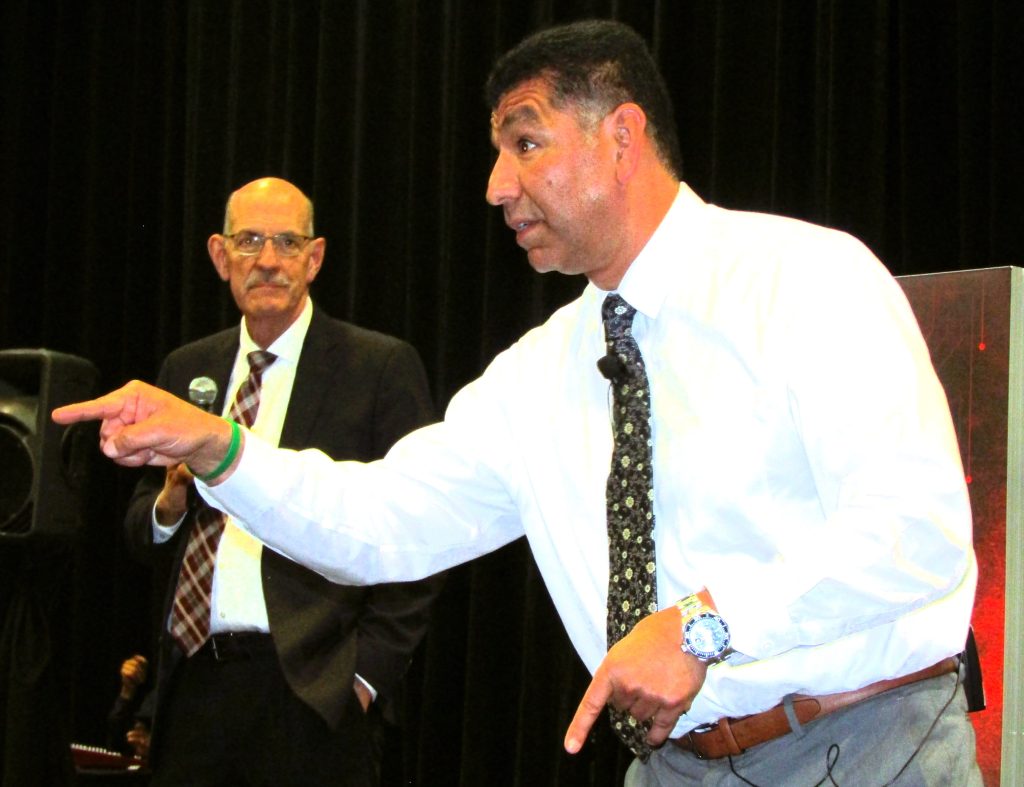Illinois unemployment steady in September, IDES said
QCBJ News Staff

Al Perales, right, an investigator with the Iowa Attorney General’s Office, and Doug Ommen, Iowa Insurance commissioner, take questions from the audience on Monday, March 4, during the “Stop the Scammers Roadshow” held at the RiverCenter in Davenport. CREDIT DAVE THOMPSON
A Quad Cities crowd on Monday night, March 4, heard heart-breaking stories of Iowans being conned out of money from scammers. Some of those stories included:

Get immediate, unlimited access to all subscriber content and much more.
Learn more in our subscriber FAQ.
Do you want to read and share this article without a paywall?
